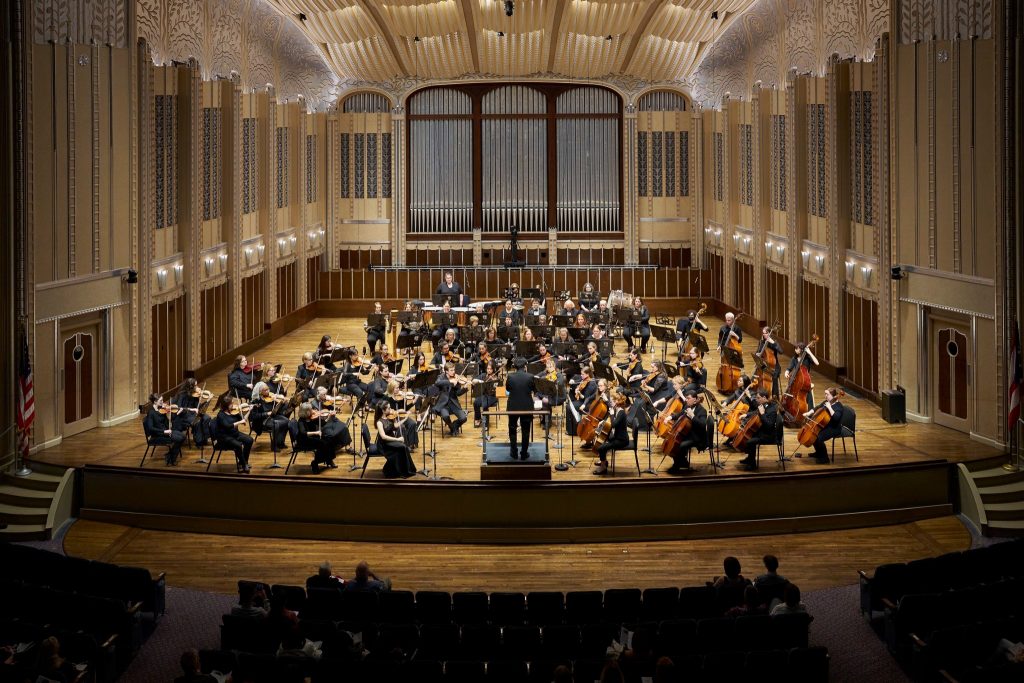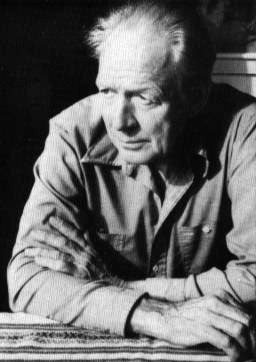by Jarrett Hoffman

•Today: OLO opens How To Succeed in Business Without Really Trying at 2:00 in Wooster
•Announcements: auditions for Cleveland Women’s Orchestra (pictured), openings at Kaboom Collective
•Almanac: the band music of Cleveland-born Clare Grundman
HAPPENING TODAY:
At 2:00 pm at Freedlander Theatre in Wooster, Ohio Light Opera presents the opening matinee of How To Succeed in Business Without Really Trying (book by Abe Burrows, Jack Weinstock, and Willie Gilbert, music and lyrics by Frank Loesser). Tickets are available here.
ANNOUNCEMENTS:
The Cleveland Women’s Orchestra is currently holding auditions for all instruments — especially strings. Auditions continue at Judson Manor on June 20 and 22, with half-hour time slots available 3:00-5:30 pm and 7:00-8:30 pm. Applicants should prepare two solos of their choice — one fast, one slow — and will also be asked to sight read. Those interested should email a “Letter of Intent to Audition” to clevelandwomensorchestra@gmail.com, including your name, instrument, cell phone number, and preference of time slot.
And the Kaboom Collective has announced that there are a few open spots in the Studio Orchestra for the ensemble’s next series of productions. Apply here.
TODAY’S ALMANAC:
Those born on this date in history include German composer Franz Danzi (1763), Norwegian composer Edvard Grieg (1843), American composer and arranger Robert Russell Bennett (1894), German-American composer Otto Luening (1900), and German violinist and pianist Julia Fischer (1983).

Grundman was born in Cleveland in 1913, graduating from East Cleveland’s Shaw High School in 1930 before attending Ohio State University. Continuing at OSU for his master’s, he also taught arranging and conducted the band both during and after earning his degree, and served in the U.S. Coast Guard as a military musician during WWII.
Among his important influences were Paul Hindemith — with whom Grundman studied composition at the Berkshire Music Center — and Manley R. Whitcomb (best known for serving as Director of Bands at Florida State University), who encouraged Grundman to write for band. And while his career spanned a wide variety of areas — including scores and arrangements for film, radio, TV, Broadway, and ballet, as well as chamber and orchestral music — his 100+ works for band have brought him particular recognition.
Grundman often displayed an interest in folk music, and among his most popular compositions are the American Folk Rhapsody No. 4, dedicated to Donald E. McGinnis and the Ohio State University Concert Band, and The Spirit of ‘76, subtitled “Based on Songs of the Time of George Washington and the American Revolution.” Listen to the latter here in a recording by — fittingly — the U.S. Coast Guard Band.



